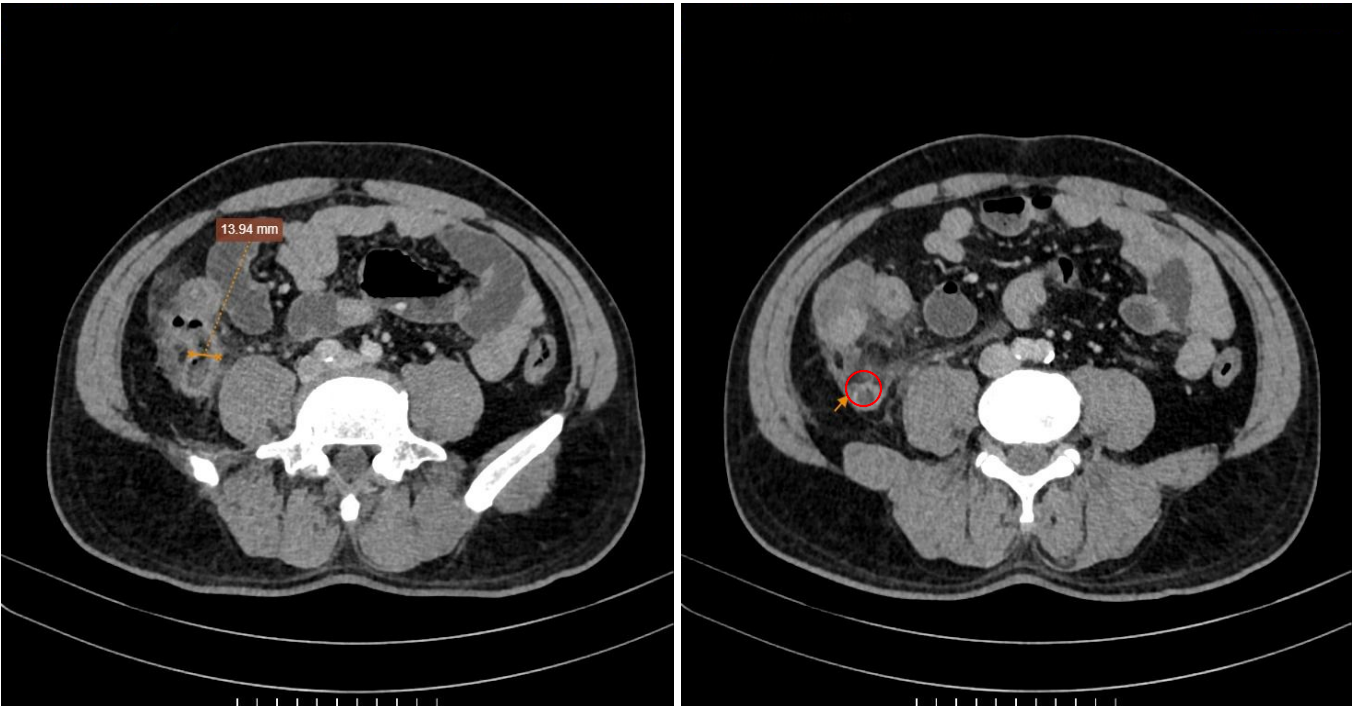Dr. Nguyen Chan Dong of the Emergency Department at Tam Anh General Hospital in Ho Chi Minh City reported that Mr. Kiet was admitted with a fever of nearly 40°C, a rapid heart rate (121 beats per minute), low blood pressure (118/54 mmHg), and pain throughout his abdomen, particularly around his navel. A CT scan revealed a necrotic appendix and fluid in the abdomen, suspected to be caused by a ruptured appendix leading to peritonitis.
Dr. Pham Thanh Trung of the Center for Endoscopy and Minimally Invasive Digestive Surgery performed laparoscopic surgery on Mr. Kiet to minimize the risk of surgical site infection and reduce the likelihood of future bowel adhesions. The surgical team discovered pockets of pus in the Pouch of Douglas (located between the uterus and rectum), the right iliac fossa, and the right paracolic gutter. The end of the small intestine and the ileum were adhered to the abdominal wall, accompanied by a large inflammatory mass in the right iliac fossa, extending behind the cecum. This mass reached close to the hepatic flexure, making dissection challenging.
 |
CT scan showing the unusual location of the patient's appendicitis. Photo: *Tam Anh General Hospital* |
Dr. Trung explained that a normal appendix is small, about the size of the little finger, with a diameter of around 6 mm. In this patient, the appendix was nearly 14 mm, twice the normal size, necrotic, and perforated. The long-standing inflammatory abscess contained pus, adhesions, and fecaliths, which made the dissection difficult.
After removing the entire necrotic appendix and draining the pus, the doctors placed two drains for monitoring. Post-operatively, Mr. Kiet's health gradually improved, his vital signs stabilized, the surgical site remained dry, abdominal drainage decreased, and he was discharged after a week.
 |
The Center for Endoscopy and Minimally Invasive Digestive Surgery team during a surgical procedure. Illustration photo: *Tam Anh General Hospital* |
Doctors advise that persistent dull abdominal pain, high fever, and irregular bowel movements can be signs of acute appendicitis. Patients experiencing these symptoms should seek medical attention for prompt diagnosis and treatment.
Nhat Thanh
*The patient's name has been changed.












